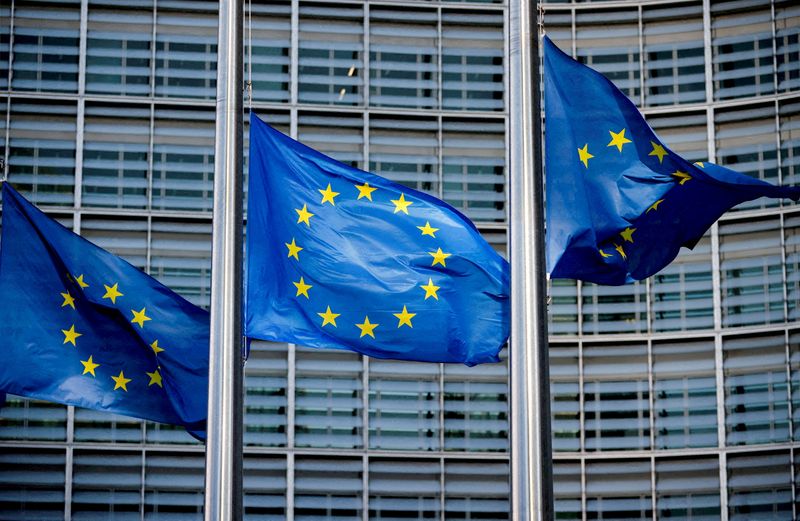By Philip Blenkinsop
BRUSSELS (Reuters) -France, Greece, Italy and Poland will vote on Friday for tariffs of up to 45% on imports of electric vehicles (EVs) made in China, sources said, enough to get the European Union proposal passed in a move likely to increase trade tensions with Beijing.
The European Commission, which is conducting an anti-subsidy investigation into EVs made in China, has sent its proposal for final tariffs to the EU’s 27 member states ahead of a vote expected on Friday.
Under EU rules, the Commission can impose final or “definitive” tariffs for the next five years unless a qualified majority of 15 EU countries representing 65% of the EU’s population votes against the plan.
France, Greece, Italy and Poland will vote in favour, officials and sources of those countries said, in line with their positions in an earlier vote in July, although Greece did not participate then. Together, they represent 39% of the EU population.
The Commission can also submit a new, amended proposal if it chooses.
Commission President Ursula von der Leyen, who launched the investigation a year ago, said EU industry needed to protect itself against a potential flood of cheap Chinese EV imports benefiting from state subsidies.
The EU auto industry has generally opposed tariffs, notably German carmakers, for which almost a third of sales are from China.
French President Emmanuel Macron said that he supported tariffs and that the level of Chinese subsidies was “unbearable”.
“Broadly we have to protect the level playing field in all the different sectors of our industry,” he said in a speech in Berlin.
The Czech industry and trade ministry, while declining to say how it would vote on Friday, said it took seriously the Commission’s conclusions about “China’s unfair practices” and noted that the United States, Canada, Turkey and Brazil had already taken action.
The position of Spain, a previous backer of tariffs, is unclear after Prime Minister Pedro Sanchez said on a visit to China in September that the EU should reconsider its position.
German Chancellor Olaf Scholz said on Wednesday talks with China must continue, but his country, which abstained in July, may do so again given differences of opinion in its three-party government.
The EU executive has said it is willing to continue negotiating an alternative to tariffs with China and could re-examine a price undertaking – involving a minimum import price and typically a volume cap – having previously rejected those offered by Chinese companies.
One option under negotiation is minimum import prices calculated using criteria such as the range, battery performance and length of the electric vehicle, along with whether it is two- or four-wheel drive, a source familiar with the matter said.
An alternative is a commitment to investment in the EU, with quotas for a transitional period.
The tariffs range from 7.8% for Tesla (NASDAQ:TSLA) to 35.3% for SAIC and other companies deemed not to have cooperated with the EU investigation. These tariffs are on top of the EU’s standard 10% import duty for cars.

